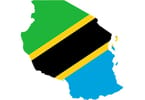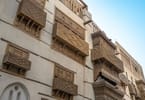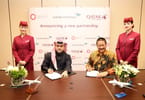(eTN) – Tourism once was a beacon of hope for the newly-independent Republic of Southern Sudan, but those hopes are being dashed now on multiple fronts and all at once. Inter-ethnic violence struck earlier in the week when several thousand armed youths of the Lou Nuer tribe set upon their perceived rival tribe, Murle, reportedly killing as many as 3,000 women, children, and men while abducting a large number of young boys and girls for slave labor and to turn them into child soldiers or “forced wives.”
The long simmering conflict came to a genocidal head just a few days ago, leading to the total destruction of villages, looting, raping, and burning with most of the livestock also driven away as “bounty.” These tactics are reminiscent of the Khartoum regime’s affiliated militias, used as proxy fighters to do the dirty work in Darfur and, of course, in the disputed territories of South Kordofan, Blue Nile, and Abyei. There, the regime is engaged in a campaign of ethnic cleansing against Africans, to tilt the playing fields when they will finally hold the agreed referenda on the future of those regions, and aerial bombings supported by artillery attacks on villages and towns were also followed by a policy of burned earth, with systematic looting, raping, and murdering of civilians driving over a hundred thousand new refugees into the independent south.
The Lou Nuer attack has all the hallmarks of having been instigated by the north, using tribal sentiments as a foundation on which to ferment trouble, while Sudanese troops have repeatedly and directly violated the territorial integrity of the south, including aerial bombings of Southern villages and refugee camps.
Only when SPLA troops arrived in Pibor and engaged the Lou Nuer directly, did the murderous militia attacks stop, leaving, however, total destruction behind them.
These tribal differences, seen as potentially the biggest challenge to the new country, besides the constant threats by the north, are not boding well for economic development. Already struggling to turn oil exports into readily available cash, Khartoum is trying to block such exports through the pipeline system to Port Sudan, trying to extract ransom through blackmail vis-a-vis huge “transit fees,” while allegedly stealing large quantities of southern oil as a matter of policy.
Such worries, however, have started to impact on the willingness to invest in the Southern Sudan’s tourism industry, and a leading hospitality stakeholder from Nairobi in a discussion on the phone said: “…for the time being, major investments are not likely to happen. This is for a number of reasons. The security issue clearly weighs very heavily on any potential investor, but even if that is resolved, other problems have surfaced. Southern Sudan needs an investment law, protecting investors on many areas.
“Being able to pay foreign sourced loans with enough hard currency is one, repatriating dividends when one reaches profit stage, another. There has to be incentives like tax breaks, duty- and tax-free importation of inputs for projects.
“Land ownership seems very complicated and complex as it involves several levels of competing authority, and the parks have no guidelines on concessions either so far. And besides, the legal system has to be in line with the rest of East Africa, by compatible laws and an independent and functioning court system. They are also lacking relevant laws governing tourism, lack regulations.
“Southern Sudan in the medium term is important and interesting for us, but they [have] really got to sort out a lot of issues, including the entire process of arrival and departure from Juba. They need to shed their pre-independence red tapes they had to do for the sake of still being part of Khartoum Sudan but now, a lot of those registration issues should just be dropped.”
At the same time it was learned that, while the SPLM’s economic agenda had tourism earmarked as a sector capable to generate employment, attract FDI, bring in foreign currency, and drive the economic recovery, the tourism ministry is given little in terms of budget support, leaving it unable to effectively promote the existing national parks or develop the sector overall. At times, due to their dire financial situation, they are unable to finance even the smallest projects, and when given money from private sources or NGOs, it appears they are being almost dictated to by stakeholders with their own vested interests, to cement their own and at times personal presence and influence in Juba and the parks and keep competition away.
Not rosy signs for a sector which still could make a difference in the new Republic of Southern Sudan, but much has to change and the international community is clearly not doing enough to protect the south from the northern aggression or support the government in Juba to deal with its internal challenges, political, as well as economic.
WHAT TO TAKE AWAY FROM THIS ARTICLE:
- There, the regime is engaged in a campaign of ethnic cleansing against Africans, to tilt the playing fields when they will finally hold the agreed referenda on the future of those regions, and aerial bombings supported by artillery attacks on villages and towns were also followed by a policy of burned earth, with systematic looting, raping, and murdering of civilians driving over a hundred thousand new refugees into the independent south.
- At the same time it was learned that, while the SPLM's economic agenda had tourism earmarked as a sector capable to generate employment, attract FDI, bring in foreign currency, and drive the economic recovery, the tourism ministry is given little in terms of budget support, leaving it unable to effectively promote the existing national parks or develop the sector overall.
- The Lou Nuer attack has all the hallmarks of having been instigated by the north, using tribal sentiments as a foundation on which to ferment trouble, while Sudanese troops have repeatedly and directly violated the territorial integrity of the south, including aerial bombings of Southern villages and refugee camps.






















